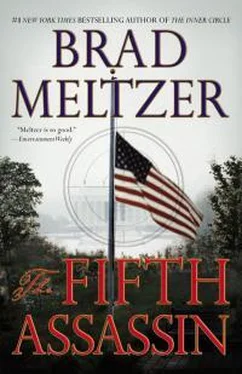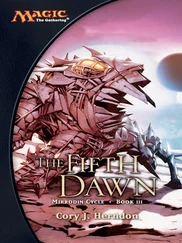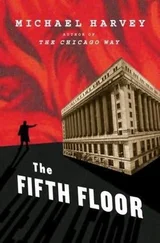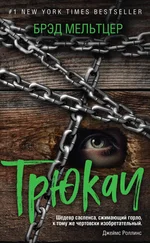“But you just said… at noon today… That’s when the Knight—”
“Marshall. The Knight is Marshall .”
“… that’s when Marshall is going to kill President Wallace,” I add, saying the words for the very first time. And finally believing them.
“So what do you propose we do?” Grace asks.
“ Me? I have no idea. But at the very least, we need to report this. Call the Secret Service. Tell them what’s going on.”
“And you think that’ll help?” she challenges. “Beecher, if you call the Secret Service and tell them you know about an impending attack, there’s only one thing I can guarantee: By the time you hang up, a set of Secret Service agents will be driving to your house and you’ll be the number one suspect. And in two hours, when the Knight finally pulls that trigger and your prediction comes true, you —Beecher White—will be the very first name linked to that attack.”
“That’s not true.”
“It is true. And y’know what’ll make it even more true? When they find the security footage—which you know exists—of you sniffing around that restaurant in Georgetown yesterday. I told Tot not to let you near Marshall—but you couldn’t see it, could you? When you trailed Marshall to Café Milano, that was exactly what he wanted. He had you—on camera—right at the potential murder scene the day before the President was scheduled to be there. And he had you there for the same reason he let you into his apartment… and let you put your fingerprints all over that Abraham Lincoln mask that you so conveniently thought you ‘found.’ And then, when you put that all together—the video, the fingerprints, the Lincoln mask, plus this phone call you’re about to make—you know what they call that in court? Exhibit A. Exhibit B. Exhibit C. Exhibit D. ”
I start to say something, but as we both know, there’s nothing left to say.
“Tot said you’re a smart person—and a good person, Beecher. I have to believe he’s right. But since the moment this started—whether it’s from guilt or just regret—whatever happened with Marshall when you were little… whatever you built into his life, you can’t see what he’s been building around you: a spider web. And the more you tug, the more it’s going to strangle you.”
“So that’s it? I run to the safehouse, and we just give up?”
“Sometimes it’s like that oxygen mask on an airplane: You’ve got to put the mask over your own mouth first and save yourself before you can save anyone else.”
“What about you, though? You’re the computer whiz. Can’t you do something? Hack something? Alert the Secret Service anonymously?”
“Who do you think sent them the reports on the recent attacks? I sent them Marshall’s name and his photograph. We’re doing our job, Beecher. It’s time to let the Service do theirs.”
I think back to what Nico said when I was at St. Elizabeths: that I was the Knave. That when it came right down to it, I didn’t actually care about saving the President. But I also remember what I told Tot. We need to be the good guys. Always.
“We need to do more,” I insist, reaching for my winter coat.
“Beecher…”
“I mean it, Grace. You’re acting like our hands are tied. We need to tell them ourselves.”
“And how do you plan on doing that, Beecher? You think you can just drive to Camp David?”
“I don’t know. I haven’t—” I cut myself off, still thinking of what happened all those years ago to Marshall in the basement. There’s a cost to doing nothing. I’m not paying that cost again. “All I know is this: What doesn’t make sense is sitting here and doing nothing when we know exactly where and when he’s pulling that trigger,” I say, yanking the ace of clubs playing card from the Tupperware full of urine and running it under a quick blast of water. The words Camp David begin to fade, but you can still read them on the card. “You heard that story Tot told, about Marshall breaking into the army base. The Service has no chance against him. Not when they don’t know who they’re facing.”
“Then let me share this fact with you: If you get anywhere near the President or the White House or Camp David, they’re going to pull every gun they have and aim it at your head.”
“That’s fine, because you know what else’ll happen? They’ll grab the President, take him into whatever saferoom they have out there, and at least he’ll be safe. Think about it, Grace. If you could go back in time and you knew about Lee Harvey Oswald, would you be content with just sending the Secret Service a telegram—or would you drive down to the Book Depository and do everything in your power to make sure the assassination didn’t happen?”
Slapping my laptop shut and tucking it under my arm, I grab the car keys, fly through my living room, and race for the front door.
“Beecher,” she pleads, leaning hard on her Boston accent, “I don’t think you’re thinking this through. What if you’re doing exactly what Marshall wants you to do?”
“Then I guess I’m in—”
I yank the front door open and stop midstep. Blocking my way is a tall man with dyed black hair and the most exhausted eyes I’ve ever seen. He lowers his chin like he’s turning away, but all it does is call attention to the rose-colored scar on his neck. The one he got on the day I saw him die.
“Just hear me out,” Dr. Stewart Palmiotti says. “I have a proposition for you.”
87
They grabbed the chaplain first.
The paramedics, the nurses… they knew she was dead the moment they saw her. Chaplain Stoughton’s skin wasn’t pink anymore. It was ashen and dark gray. No one comes back from that. But they still scrambled, lifting her body, which hit like deadweight, onto the gurney.
Running and ripping away her blood-soaked shirt, they rushed her out of the hospital chapel and across the hall to the emergency room. Chaplain Stoughton was still a member of the hospital’s staff. How could they not grab her first?
It was a younger doctor—an Orthodox nephrologist who’d come down to say a prayer for his sick niece—who was the first on scene. Stepping into the chapel, he saw the puddle of blood pooling across the light cream carpet.
This was still a hospital. Within seconds, gurneys were rolling, IVs were flowing, and the emergency room staff mobilized, filling three side-by-side rooms and trying to bring one of their own back to life. They didn’t have a chance.
In the first room, a trauma nurse called the time of death for Chaplain Stoughton. In the second, an attending physician and a handful of nurses were literally holding Tot’s skull together. As the doctor looked into Tot’s wide-open eyes, only one of them was reacting to light. He’d blown a pupil and his brain was now herniating, shifting to the other side of his skull. They started prepping him for surgery, but already knew the outcome. And in the third room, Pastor Frick—the pastor who was shot yesterday, and who had just gone to say goodbye to Chaplain Stoughton—was still in shock, his eyes dancing back and forth as doctors and nurses shouted questions in his face.
“ Sir, are you okay!? Can you hear me!? ” someone yelled.
“He spared me… he said my time had come,” Pastor Frick kept whispering, over and over. As his foot tapped against the floor, the digital step counter on his shoe clicked upward.
“Did you get a good look at him? Did you see anything ?”
Pastor Frick nodded, a thin splatter of blood running diagonally across his nose.
“You saw the shooter!? What’d he look like!?”
Frick glanced up, his chin quivering. He could barely get the words out.
Читать дальше











